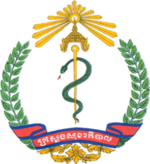Issue Description
As detailed previously, the procedures surrounding the registration of medical products could be re-examined to reduce the administrative blockages that are currently afflicting the healthcare sector in Cambodia. This issue is particularly apparent for medical device distributors, who are required to register different variations and components of the same product as separate registrations. This substantially increases the cost of bringing new devices to market and the resources required to submit applications.
For example, when a distributor registers a single use device such as an implant, which must be available in multiple sizes to suit an individual’s requirements, while still serving the same function, the Ministry of Health sometimes requires each variation be registered as a separate product. This is a significant concern for distributors of lifesaving devices such as cardiovascular implants, as these specialised low volume products are required in a range of sizes, though the cost of registration can severely impact their availability. Similarly, reagents, which are substances that are used in combination with other systems to cause a chemical reaction, are needed in hundreds of variations for specific functions, though they are still required to be registered separately from the equipment they are used with.
Presently, there appears to be inconsistency in the administrative procedures for registering reagents. The Department of Drugs and Food has stated that the registration of multiple reagents is permitted when registered simultaneously with the equipment they are used with. However, our members report that in practice, this is still not always possible and they must continue to register each reagent separately and pay multiple registration fees.
As a regional example, to cater to the diverse categories of medical devices available in Singapore, distributors are able to group certain devices under one product registration application to simplify administrative processes. To collectively register devices under a group, products must have a common intended purpose, be of the same risk classification and the variations be within a defined scope. These pre-existing guidelines on family registration could be appropriate for use in Cambodia.
Impact on business
Replicating Singapore’s system for group registrations for medical devices by permitting distributors to register their product variations under a family or category would help to alleviate the administrative blockages that exists within the Cambodian healthcare sector. The resources required by both the Ministry of Health and the private sector to process product registration would decrease considerably, with no impact on safety as products must still be compliant and registered accordingly.
The continuation of unpredictable practices regarding the registration requirements of medical equipment contributes to unfair competition, as one registration application can cost around USD 100, thus the cost of registering hundreds of variations of reagents separately, rather than collectively is extremely expensive for distributors. The increasing cost and length of compliance hinders innovation and choice as it discourages suppliers from bringing state-of-the-art equipment to Cambodia. The impact of this is overwhelmingly felt by patients and the quality of care they receive, as patients will be unable to benefit from advanced and lifesaving treatments, while healthcare professionals will struggle to keep up with the rapid technological developments of the industry.
Recommendation
- Allow the collective registration of multiple medical devices under a family or category registration.
We respectfully recommend that the MoH consider issuing regulations that would allow for the collective registration of multiple medical devices under a family or category registration.
To lessen the administrative burden placed on the Ministry of Health and medical device distributors, we respectfully recommend that the Ministry consider issuing regulations that would allow for the collective registration of multiple devices under a family or category registration, when the application is made simultaneously.
Additionally, to offset the potentially reduced revenue as initially there should be less new product registrations, the Ministry could charge an increased fee for the registration of equipment that requires multiple variations or associated components.
Royal government of Cambodia
Initiative from Eurocham: The issue has been raised by the Healthcare Committee within The White Book edition 2024 in the Recommendation No. 45.

National Counterparts

Ministry of Health

